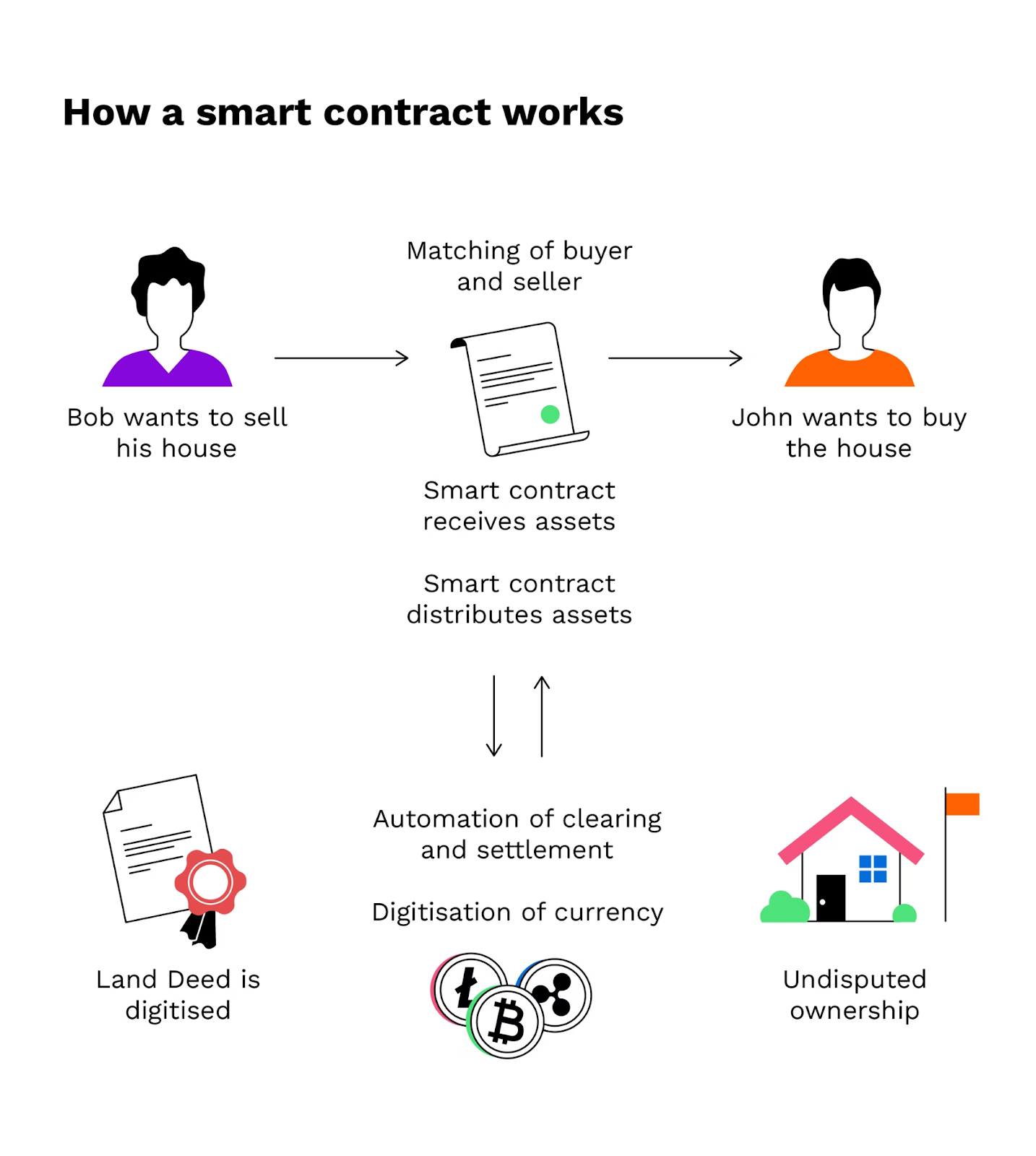In today’s modern world, the way we do business is always changing. And automation is becoming an increasingly important component of how we operate.
As we all know, contracts govern most parts of our professional and personal life, and they are necessary for contemporary society to function.
As an introduction to Blockchain technology, smart contracts serve a critical role in making transactions more safe, secure, and structured.
Smart contracts, moreover, can also revolutionize your internal procedures as well as your client experience.
Let's take a deeper look at what smart contracts entail for your company.
Read more: All about Web 3.0: Is it really the future of the internet?

WHAT ARE SMART CONTRACTS?
Nick Szabo, a cryptographer, coined the phrase "smart contract" in the 1990s.
The smart contract is written in a virtual language with the ability to execute and enforce itself, autonomously and automatically, based on a set of predefined criteria.
The code and the agreements it contains are disseminated throughout a decentralized blockchain network. The execution is controlled by the code, and transactions are traceable and irrevocable.
The automation of processes that previously required a third-party mediator is one of the main advantages of blockchain networks.
Read more: How Can Web 3.0 Boost Your Business?
A smart contract, for example, can replace the requirement for a bank to authorize a payment transfer from a customer to a freelancer. All that's needed is for two sides to agree on a single idea.
The formulation and execution of smart contracts has been eased since the launch of the digital currency Ethereum, as the Ethereum protocol allows for sophisticated transactions to be coded.
HOW DOES SMART CONTRACT WORK?
A smart contract operates on the basis of automated conditional performance. When one contractual obligation is satisfied, the next one is triggered.
Smart contracts are based on the "If-Then" principle. An obligation, for example, might be triggered by:
If – The user chooses the product that they desire.
Then, the machine shows the price and requests payment.
If – After that, the user makes a payment.
Then, the product is delivered.

Vending machines are frequently used to illustrate how smart contracts function.
You pick your goods, pay for it, and receive your item. That is, if everything is in working order and you don't have to shake the machine to get your drink!
Read more: Digital wallet for NFT! Why not?
BENEFITS OF SMART CONTRACTS
Smart contracts have a number of possible commercial benefits.
Cost efficiency. Smart contracts offer to automate cross-organizational business operations. Many operational costs and resources may be saved as a result of this, including the employees required to oversee the development of a complicated process that operates in response to conditions that cross organizations.
Autonomy. Smart contracts employ computer protocols to automate tasks and save time in a variety of business processes. By removing the need for brokers or other intermediaries to approve already signed legal contracts, the automated agreements reduce the risk of third-party manipulation.
Read more: 5 big brands that have already stepping into the metaverse
Reliability. To keep track of all activities, smart contracts can use blockchain ledgers and other distributed ledger technology. It also allows for automated transactions, which eliminates the possibility of human mistake and ensures contract execution accuracy.
Processing speed. The rate of processing smart contracts help speed up multi-enterprise business operations.
Sustainability. Contracts decrease pollution by eliminating the use of paper in offices, notaries, and registers.
WILL SMART CONTRACT REPLACE LAWYERS?
In a nutshell, probably not — at least for the time being.
Smart contracts, it is widely agreed, will never completely replace regular legal contracts; human intervention will always be required.
Contracts will always include elements that require legal interpretation - both by attorneys advising their clients and by the courts in the event of a dispute.
Certain legal phrases and notions (for example, "negligence" or "reasonability") are difficult to explain in code and must be deciphered by humans.
Read more: Examples of big brands trying on 3D & AR in advertising
WRAP UP
Many banks and insurance companies have already begun to employ smart contracts in their day-to-day operations.
As a consequence, smart contracts are now available and being tested in real-world circumstances, and it won't be long until they become ingrained in our daily lives.
Do you want to learn more about how smart contracts may help your company? Please contact us if you are interested in learning more about our services, which include smart contract creation, IoT, and artificial intelligence. We would be happy to chat with you!




















